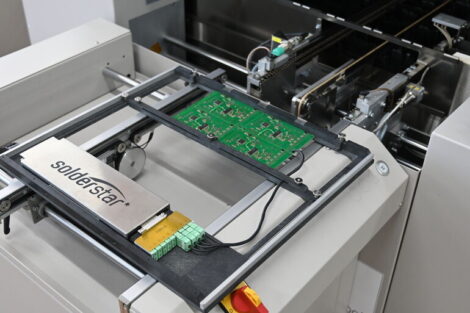The European Commission has formally asked eight member states (Estonia, Finland, France, Greece, Italy, Malta, Poland and the UK) to transpose three directives tackling the issue of electronic and electrical waste into their national laws. This must already have been completed by August 13, 2004. If a member state has failed to comply with this request, the Commission could take it to the European Court of Justice. The directives aim to ensure that e-waste, often containing hazardous materials, is not simply thrown away, but is collected, recycled and reused, with the remaining waste being properly treated. The actions are part of a series of environment-related infringement decisions against several states. Commissioner Stavros Dimas says: “Nobody wants to see old computers and TV sets piling up at the roadside and polluting the environment. Therefore, efficient collection and recycling is necessary. Member states have agreed on ambitious legislation to tackle the problems caused by rapidly growing amounts of e-waste. But they also have to do the follow-up work and implement what they have agreed upon”.
In 2002, the Council and European Parliament adopted the directive on Waste of Electrical and Electronic Equipment (WEEE). It requires member states to ensure the establishment of systems for the collection of e-waste (by August 2005). Furthermore, they have to ensure its reuse, recovery and recycling, and the sound disposal of the remaining waste. When the collection systems are in place, endusers will be able to take these products back to shops and collection points for free. The directive also sets targets and outlines the financial obligations of producers. A 2003 amendment to the WEEE directive further clarifies those obligations with regard to the financing of professional (non-household) equipment. These measures back the directive on the Restriction of the Use of Hazardous Substances (RoHS). In the EU, electro-scrap is the fastest growing waste stream, growing at 3 to 5% per year, which is three-times faster than average waste. Each citizen currently produces statistically around 17 to 20kg of such waste per year. Some 90% of this waste is still land filled, incinerated or recovered without any pre-treatment. This allows substances to make their way into soil, water and air where they pose a serious risk to environment and health. The transposition of the three directives was due before 13 August 2004. France, Italy and the UK have failed to transpose all three directives, and Finland has not yet transposed them on the Åland isles. Greece has transposed WEEE and RoHS Directives, but not the amendment to WEEE. Estonia, Malta and Poland have transposed RoHS but not yet the WEEE directive and its amendment. The Commission’s final warnings are the last step before referral to the European Court of Justice.
Share:









